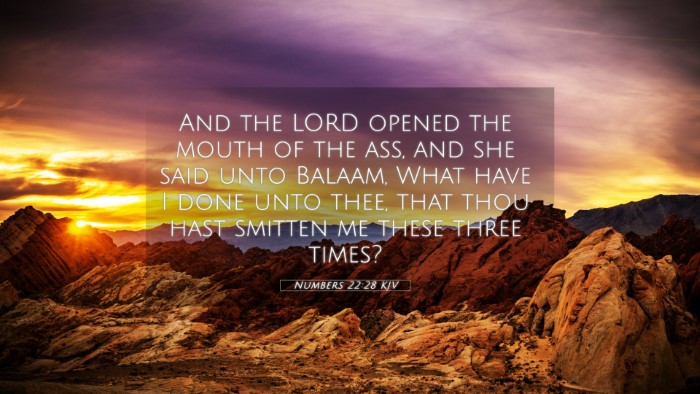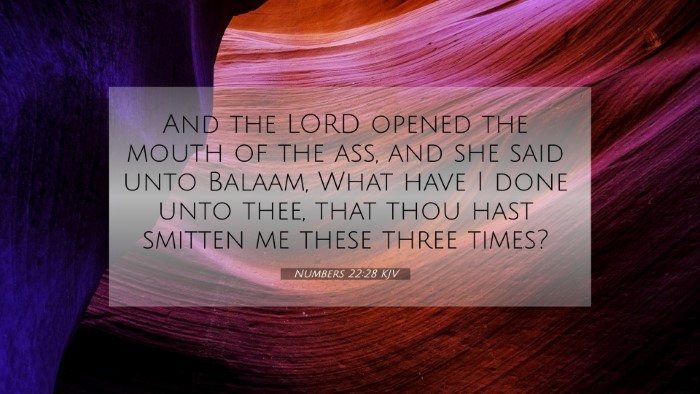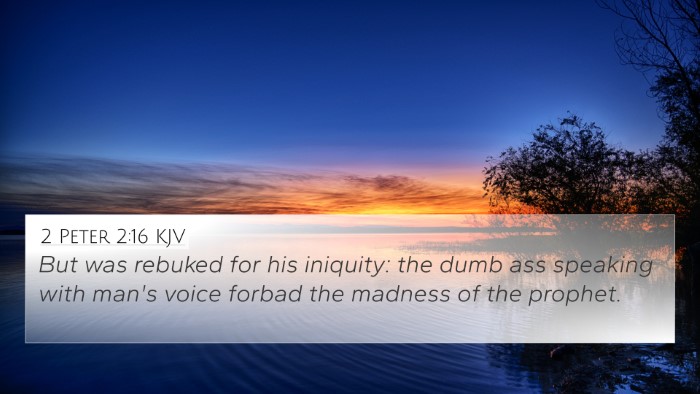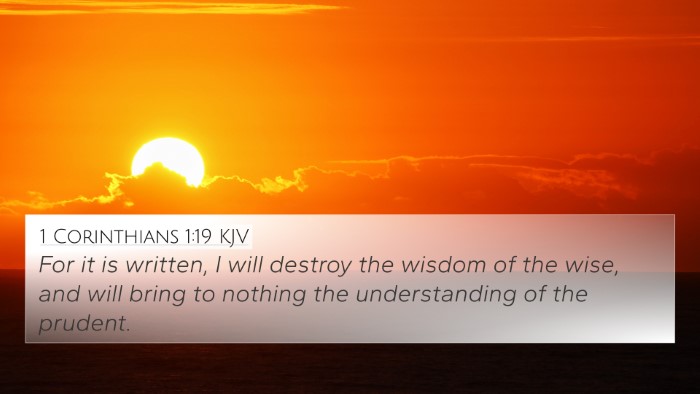Meaning of Numbers 22:28
Verse Context: Numbers 22:28 states, "And the Lord opened the mouth of the ass, and she said unto Balaam, What have I done unto thee, that thou hast smitten me these three times?" This verse captures a pivotal moment where Balaam's donkey is enabled by God to speak, addressing the prophet's actions.
Interpretation and Insights
This verse unveils profound truths about the nature of divine intervention, the foolishness of human response, and the ability of God to communicate through unexpected means. Several public domain commentaries provide insights that illuminate its meaning.
-
Matthew Henry:
Henry emphasizes that God’s control over His creations allows even an animal to deliver a message of rebuke to a prophet. The talking donkey serves as a representation of the foolishness of humanity in ignoring God's will.
-
Albert Barnes:
Barnes points out that this event underscores the folly of Balaam, who was blinded by greed and ambition. His inability to see the angel blocking his path demonstrates the spiritual dullness that comes from disobedience.
-
Adam Clarke:
Clarke reflects upon the miraculous nature of the scene, noting that it signifies God’s sovereignty over all creatures. The donkey’s speech illustrates that God can work through any means to bring about His purposes and correct His servants.
Thematic Connections
This verse invites exploration into thematic Bible verse connections. It serves as a reminder of how God employs various methods to convey His messages. Additionally, other scriptures echo similar themes of communication and divine intervention:
- 1 Samuel 15:23: "For rebellion is as the sin of witchcraft..." This highlights the seriousness of disobedience, akin to Balaam’s actions.
- Matthew 21:16: "Out of the mouth of babes and sucklings thou hast perfected praise." Here, Jesus indicates God’s ability to use the humble for powerful purposes.
- Proverbs 26:3: "A whip for the horse, a bridle for the ass, and a rod for the fool's back." This reminds us of the need for correction, paralleling Balaam’s rebuke from the donkey.
- Job 12:7-8: "But ask now the beasts, and they shall teach thee; and the fowls of the air, and they shall tell thee..." This verse encourages recognition of wisdom found in creation.
- Luke 19:40: "And he answered and said unto them, I tell you that, if these should hold their peace, the stones would immediately cry out." Here, the power of God to use inanimate creation for His glory resonates with the talking donkey's message.
- 2 Peter 2:15: "Which have forsaken the right way, and are gone astray..." This directly relates to Balaam's story, showing a caution against deviation from God’s path.
- James 3:7: "For every kind of beasts, and of birds, and of serpents, and of things in the sea, is tamed, and hath been tamed of mankind..." This reflects on the dominion humans have over creatures and the subsequent communication dynamics.
Cross-Referencing and Biblical Analysis
Engaging in cross-referencing Biblical texts unveils the interconnectedness of Scripture. To better understand Numbers 22:28, consider:
- How to find cross-references in the Bible: Using a Bible concordance or digital Bible tools can provide insights into how various verses relate.
- Bible verses related to divine intervention: Explore verses that show how God intervenes in human affairs, like in the stories of Moses or Esther.
- Identifying connections between Old and New Testament: Analyzing figures like Balaam alongside New Testament teachings illustrates continuity in God’s message.
Conclusion
Numbers 22:28 holds profound meaning, reminding us of God's sovereignty and ways of communicating His will. Through proper cross-referencing and analysis, we can enrich our understanding of this verse and the themes it presents within the broader biblical narrative.
If you are interested in understanding how specific verses connect or want to explore similarities, consider using comprehensive Bible cross-reference materials for your study.







